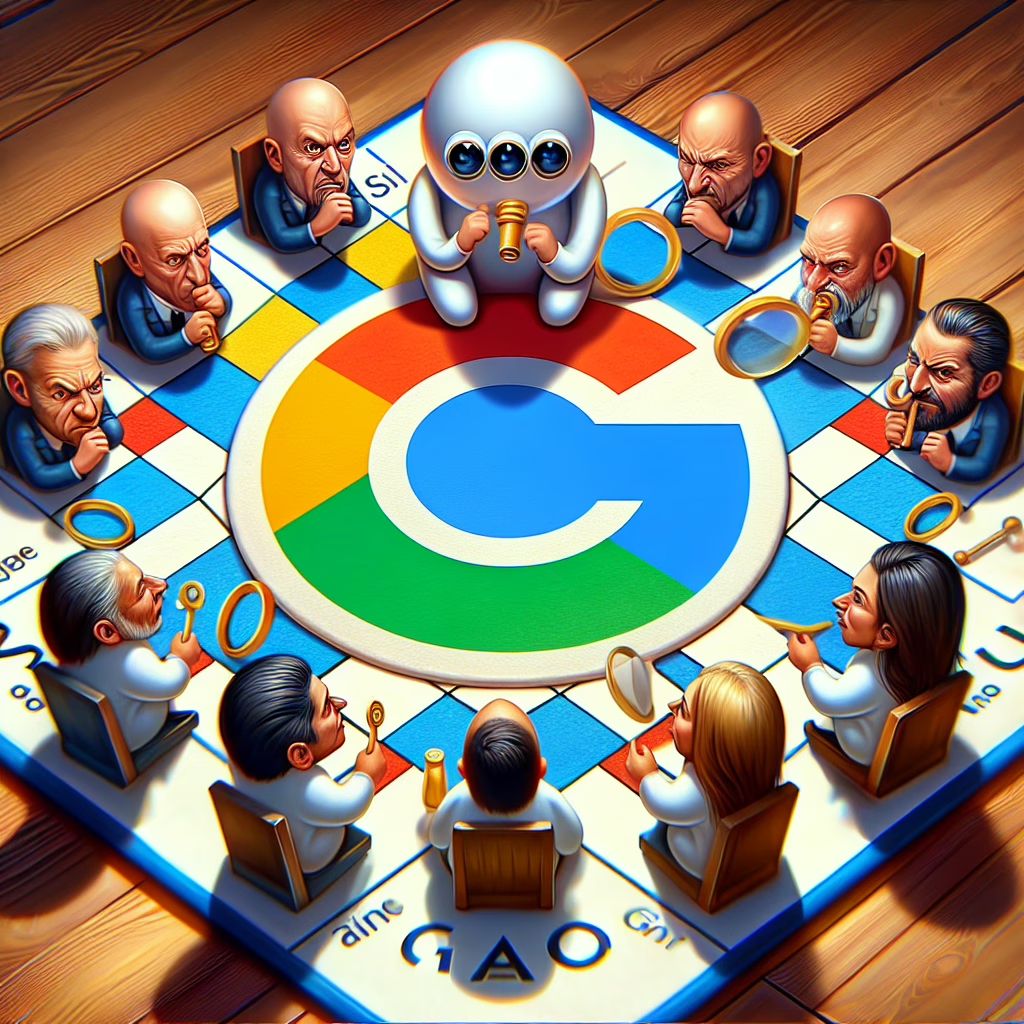In a twist worthy of a Hollywood script, a judge recently ruled that Google has been playing Monopoly—but not the fun board game kind. Instead, we’re talking about the kind where one player hoards all the properties (or in this case, ad space) and leaves everyone else scrambling for scraps. This ruling shines a spotlight on Google’s ad business monopoly and how it affects both advertisers and everyday users alike.
The Monopoly Game: How It Works
Picture this: you’re at a family gathering, and your cousin is monopolizing the game of Monopoly, snatching up all the properties while you’re left with that one utility company no one wants. This scenario mirrors what’s happening in the digital advertising world. Google’s ad business has become so dominant that it sometimes feels like they’re playing a different game altogether—one where they set the rules, determine who can play, and decide who wins.
According to recent legal findings, Google holds such a powerful position in online advertising that competitors find it nearly impossible to get a foothold. With its vast array of tools and data, Google controls a significant portion of the digital ad ecosystem. In essence, if you want to run ads online, you often have to deal with Google, whether you like it or not.
Why Should We Care About This Monopoly?
Now, you might be thinking, “Why should I care about Google’s ad business monopoly? I’m just here to scroll through cat memes and watch cooking tutorials!” Well, my friend, this ruling impacts more than just advertisers; it affects your online experience too.
First off, let’s talk about choice. When one company dominates the market, innovation tends to take a backseat. Think about it: if your favorite pizza place suddenly became the only option in town, would they really bother perfecting their crust? Probably not! The same goes for online advertising; without competition, there’s less incentive for Google to improve its services or keep prices reasonable.
Furthermore, as users of these platforms, we often pay the price—not just in dollars, but in our privacy. With Google tracking our every click and search (thank you very much), our data becomes the real currency in this monopoly game. The more data Google has on us, the more effectively it can target ads. But who likes being targeted like a deer in headlights?
The Future of Advertising in 2025
Fast forward to 2025—what does the landscape look like with this Google ad business monopoly still intact? Will there be new challengers rising up to give them a run for their money? Or will we continue seeing ads for products we didn’t even know we wanted?
Experts predict that as regulations tighten around data privacy (thanks again to various lawsuits), we might see some shifts in how digital ads are served. Perhaps smaller companies will get creative with alternative advertising models that don’t rely on the same data-heavy strategies as Google. Imagine a world where local businesses can thrive online without getting lost in the sea of Google’s algorithms!
And let’s not forget about artificial intelligence! As AI technologies advance, they can help level the playing field by offering innovative ways to reach audiences without relying solely on big players like Google. If AI can help craft personalized experiences without being creepy about it, we might just see an exciting evolution in digital marketing.
What Can Advertisers Do?
If you’re an advertiser feeling frustrated by this Google ad business monopoly, don’t lose hope! Here are some strategies:
- Diversify Your Advertising Channels: Don’t put all your eggs in one basket (or all your ads on one platform). Explore other channels like social media ads or influencer partnerships.
- Invest in SEO: Organic traffic is still king! Focus on optimizing your content for search engines to attract visitors without solely relying on paid ads. For more tips, check out our article on diversifying ad strategies.
- Engage with Your Audience: Build relationships through engaging content and excellent customer service. Happy customers often become your best marketers!
The Takeaway
The ruling regarding Google’s ad business monopoly is more than just legal jargon; it’s a wake-up call for both consumers and advertisers alike. As we navigate this complex landscape, staying informed about how these changes affect us is crucial. Will competition emerge? Will our digital experiences improve? Only time will tell—but one thing’s for sure: we all deserve a fair shot at playing this game!
So what do you think? Are you team Google or rooting for the underdogs? Let us know your thoughts!
For further reading on how digital advertising is evolving, check out our discussions on cloud storage solutions and VRR support in the gaming industry. Staying ahead in digital marketing requires keeping eyes wide open!

